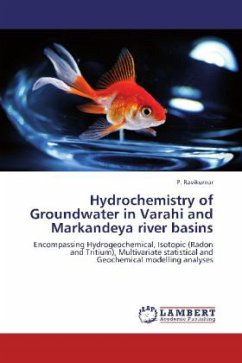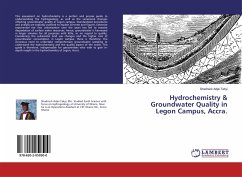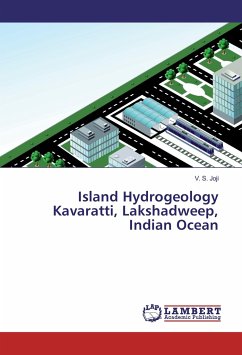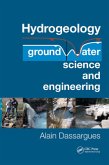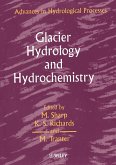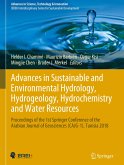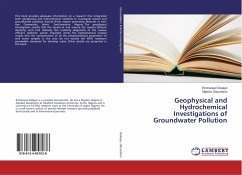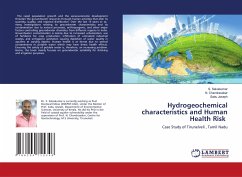The groundwater in the Varahi river basin in Udupi distirct and Markandeya river basin in Belgaum district, both situated in Karnataka state were evaluated for their physico-chemical composition, radon and tritium content in addition to their suitability for domestic and irrigation purposes. In comparison with Varahi river basin, considerable area in the Markandeya river basin are having high salinity hazards, TDS, hardness, alkalinity, chloride, etc., and such zones require special care and alternative salt tolerant cropping pattern. The groundwater data sets were subjected to geochemical modelling to depict the equilibrium state of various minerals species controlling geochemistry of water. Majority of the analyzed groundwater in Varahi (93.34 %) and Markandeya (68.75 %) river basins exhibited radioactive decay (1-8 T.U.) having a mixture of pre-modern (viz., old water) water with modern (viz., new water) recharge. The annual effective dose due to ingestion of water-borne radonwere significantly lower than the UNSCEAR and WHO recommended limit for members of the public at 1 mSv/year. Groundwater data sets were also subjected to multivariate statistical analysis.
Bitte wählen Sie Ihr Anliegen aus.
Rechnungen
Retourenschein anfordern
Bestellstatus
Storno

